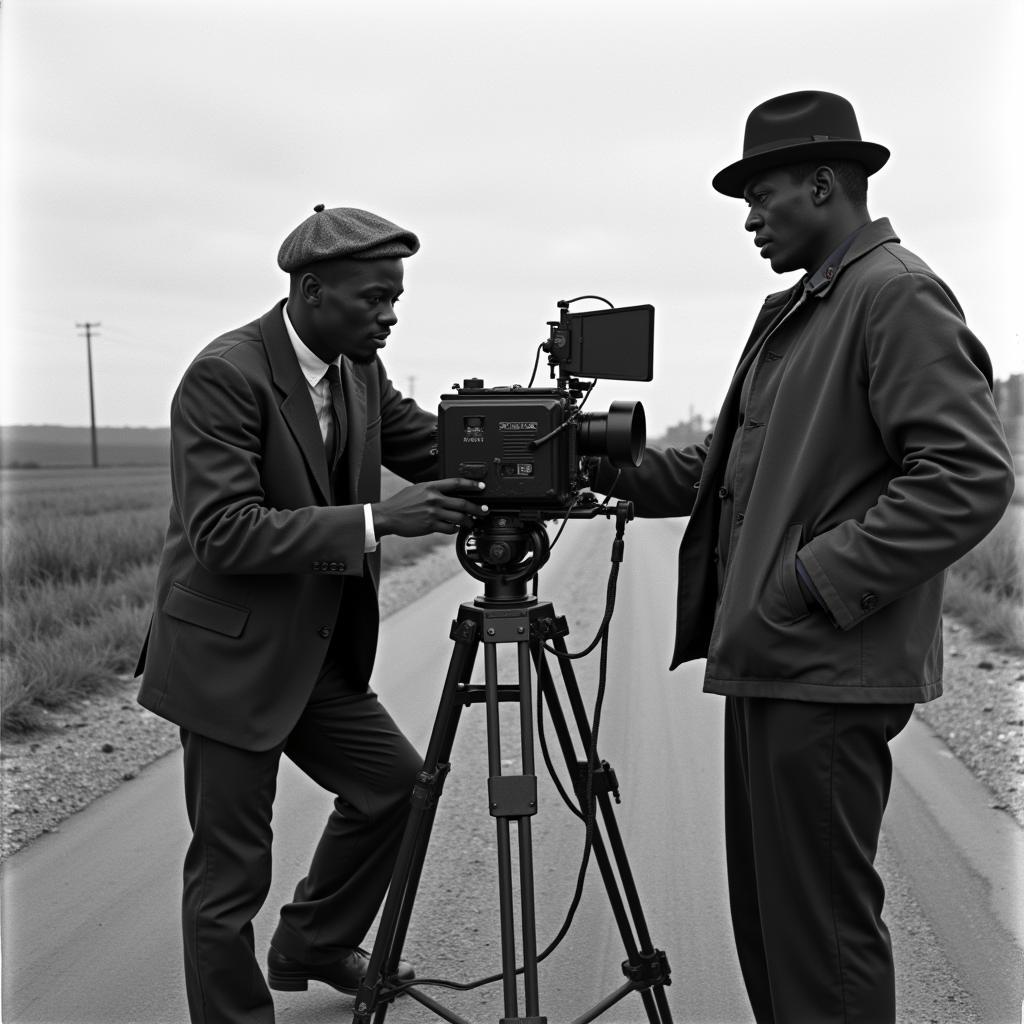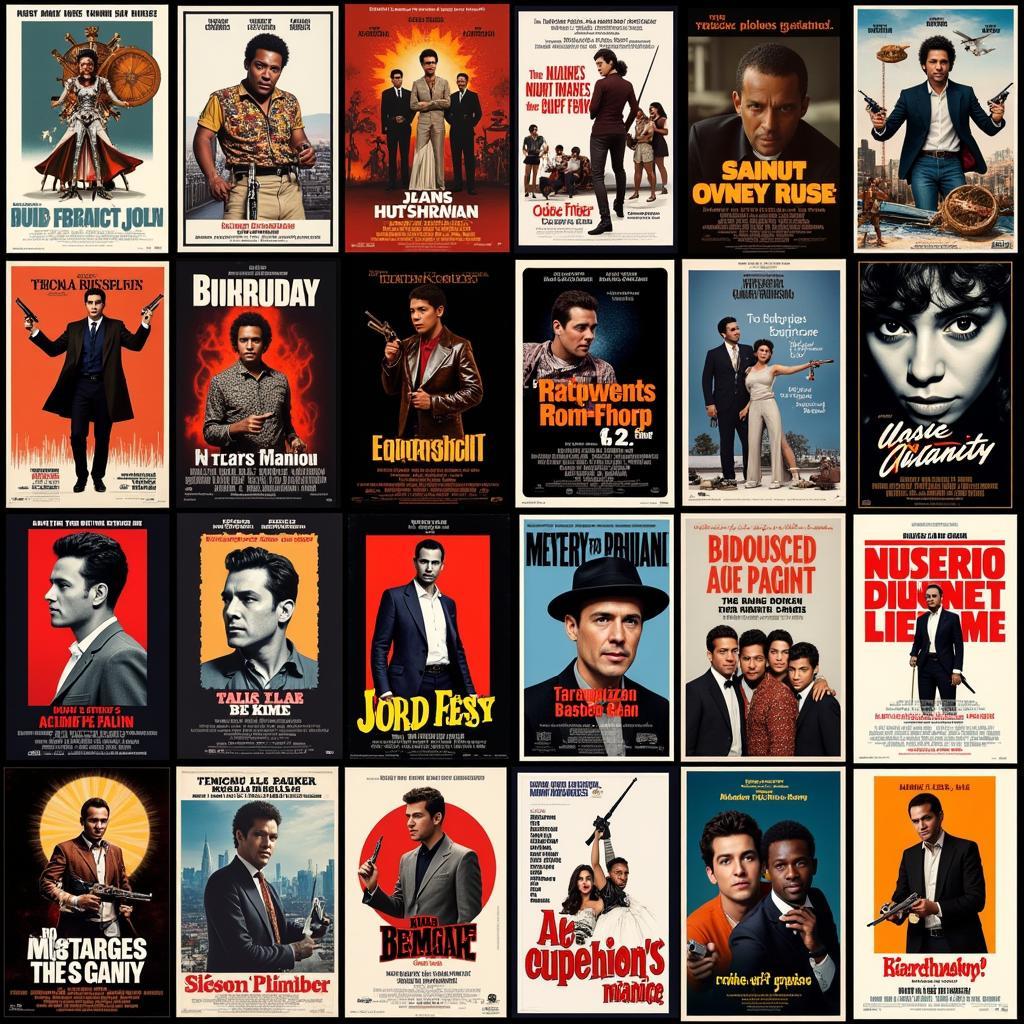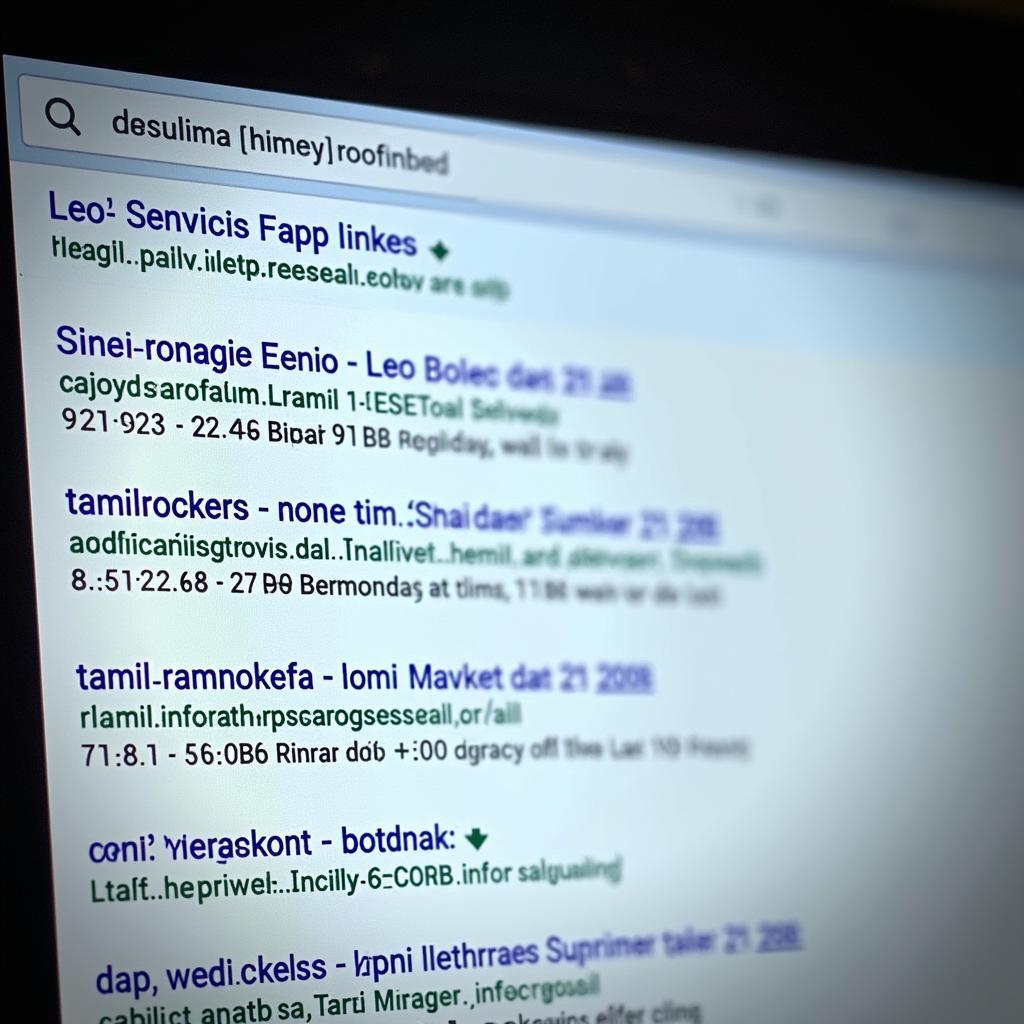The term “Nigro Sex Movie” is outdated and offensive. This article aims to provide a respectful and informative exploration of Black cinema, its historical development, key figures, and its impact on broader cultural conversations.  Pioneering Black Filmmakers in the Early 20th Century
Pioneering Black Filmmakers in the Early 20th Century
Black cinema has a rich and complex history, often overlooked in mainstream narratives. From its earliest days, it has served as a powerful tool for representation, challenging stereotypes, and giving voice to marginalized communities. This article will delve into the evolution of Black film, highlighting its triumphs, struggles, and enduring legacy.
The Pioneers of Black Film
The early 20th century saw the emergence of independent Black filmmakers determined to tell their own stories. Figures like Oscar Micheaux, known as the “father of Black cinema,” defied Hollywood’s racist depictions and produced films that addressed social issues and celebrated Black life. These early films, often made with limited resources, laid the groundwork for future generations of Black filmmakers. They tackled themes of racial injustice, identity, and the complexities of Black life in America. These pioneers carved a space for Black narratives in an industry that often sought to erase them.
The Rise of Blaxploitation and Beyond
The 1970s brought the rise of Blaxploitation films, a genre that both empowered and stereotyped Black characters. While these films provided opportunities for Black actors and filmmakers, they also faced criticism for their often violent and sensationalized portrayals.  Iconic Blaxploitation Movie Posters from the 1970s However, this era also witnessed the rise of influential directors like Melvin Van Peebles and Gordon Parks, who pushed boundaries and challenged conventional storytelling. This period sparked important conversations about representation and paved the way for more nuanced and diverse portrayals of Black life on screen.
Iconic Blaxploitation Movie Posters from the 1970s However, this era also witnessed the rise of influential directors like Melvin Van Peebles and Gordon Parks, who pushed boundaries and challenged conventional storytelling. This period sparked important conversations about representation and paved the way for more nuanced and diverse portrayals of Black life on screen.
Black Cinema in the Modern Era
Contemporary Black cinema continues to evolve, exploring a wide range of genres and themes. From groundbreaking independent films to mainstream blockbusters, Black filmmakers are challenging stereotypes, pushing creative boundaries, and captivating audiences worldwide. Directors like Ava DuVernay, Spike Lee, and Ryan Coogler have garnered critical acclaim and commercial success, demonstrating the power and appeal of diverse Black narratives. These filmmakers are shaping the cultural landscape, sparking important dialogues, and inspiring future generations of storytellers.
The Impact of Black Cinema on Society
Black cinema has played a crucial role in shaping social and political discourse. By challenging stereotypes and giving voice to marginalized communities, these films have fostered empathy, understanding, and social change. They have also provided a platform for diverse voices and perspectives, enriching the cultural landscape and prompting crucial conversations about race, identity, and social justice. The impact of Black cinema extends beyond entertainment, serving as a catalyst for reflection, dialogue, and ultimately, progress.
In conclusion, exploring the history of Black cinema reveals a journey of resilience, creativity, and social impact. From the pioneering efforts of early filmmakers to the groundbreaking work of contemporary directors, Black cinema has played a vital role in shaping cultural narratives and fostering social change.
FAQ
- Who is considered the “father of Black cinema”? (Oscar Micheaux)
- What is Blaxploitation? (A film genre of the 1970s featuring Black actors in lead roles, often exploring themes of urban life and social injustice.)
- Who are some prominent contemporary Black filmmakers? (Ava DuVernay, Spike Lee, Ryan Coogler, Barry Jenkins)
- How has Black cinema impacted society? (By challenging stereotypes, fostering empathy, and sparking conversations about race and social justice.)
- Where can I watch classic and contemporary Black films? (Movie USA Full HD offers a wide selection of Black cinema.)
For further assistance, please contact us at Phone Number: 02933444567, Email: nanathemovies@gmail.com or visit us at RF55+W7R, Lê Hồng Phong, Vị Tân, Vị Thanh, Hậu Giang, Vietnam. We have a 24/7 customer service team.
